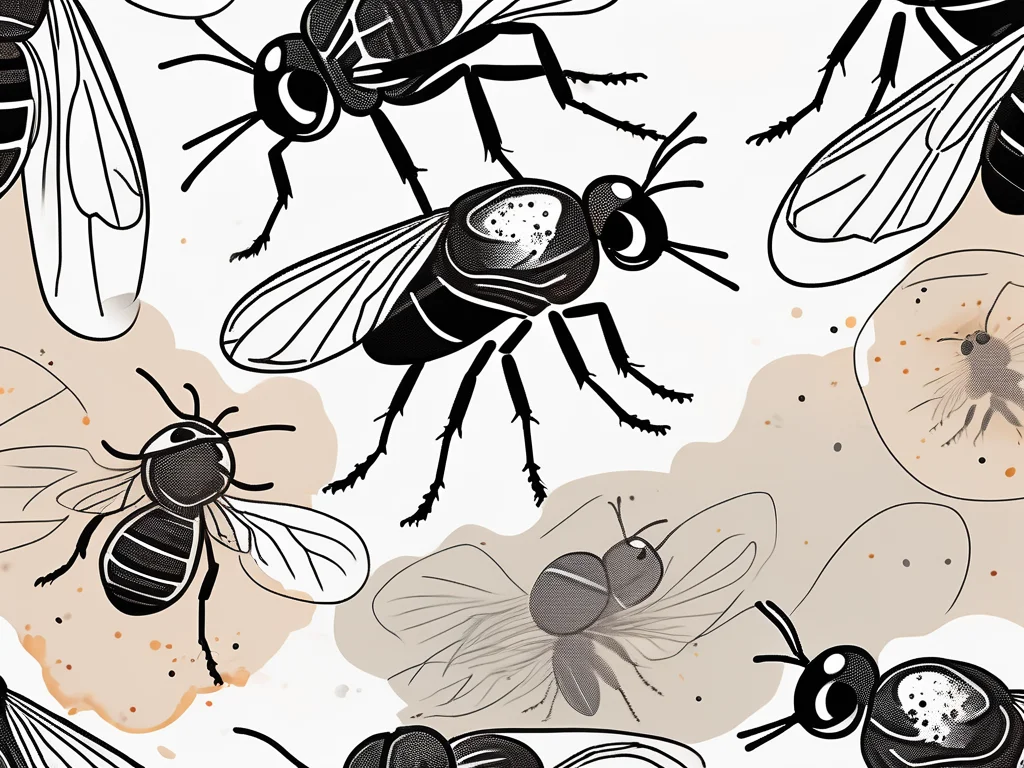Human waste, including feces and urine, can harbor dangerous pathogens that spread diseases if not managed properly. Improper disposal contaminates water, food, and environments, posing significant public health risks. This blog explores safe human waste disposal, disease prevention strategies, and innovative sanitation solutions to curb disease transmission. By understanding transmission routes, hygiene practices, and modern innovations, we can protect communities and promote healthier environments.
Why Is Proper Human Waste Disposal Important?
Human excreta is a primary source of pathogens like bacteria, viruses, and parasites that cause diseases. Without proper sanitation, these pathogens contaminate water sources, soil, and food, leading to widespread infections. According to the World Health Organization (WHO), poor sanitation contributes to over 800,000 deaths annually from diarrheal diseases alone. Safe waste disposal reduces environmental contamination, protects water quality, and prevents the spread of infectious diseases, especially in vulnerable communities.
Common Diseases Linked to Human Excreta
Improper disposal of human waste is linked to several diseases, particularly in areas with limited sanitation. Key diseases include:
- Diarrheal Diseases: Caused by pathogens like Escherichia coli, Salmonella, Shigella, and rotavirus, diarrhea is a leading cause of death in children under five, especially in developing nations.
- Schistosomiasis: A parasitic infection spread through contaminated water, caused by Schistosoma parasites.
- Hepatitis A: A viral liver infection transmitted via the fecal-oral route, often through contaminated food or water.
- Typhoid Fever: Spread by Salmonella typhi through contaminated water or food, often in areas with poor sanitation.
- Cholera: Caused by Vibrio cholerae, this severe diarrheal disease spreads rapidly in areas with untreated sewage.
These diseases thrive in environments with inadequate sanitation, emphasizing the need for effective waste management systems.
How Diseases Spread Through Human Excreta
Pathogens in human waste spread through multiple routes, increasing the risk of infection in unsanitary conditions. The primary transmission pathways include:
- Fecal-Oral Route: Consuming food or water contaminated with fecal matter spreads pathogens like E. coli and hepatitis A. Contaminated water sources are a major culprit in areas lacking clean water.
- Direct Contact: Touching surfaces or objects contaminated with fecal matter, such as bathroom fixtures or unwashed produce, can transfer pathogens. Poor hand hygiene exacerbates this risk.
- Airborne Transmission: In poorly managed waste systems, pathogens can become aerosolized during decomposition or flushing, leading to respiratory infections.
- Vector-Borne Spread: Flies and insects can carry pathogens from fecal matter to food or surfaces, increasing disease transmission.
Understanding these routes highlights the importance of sanitation infrastructure and hygiene education to break the cycle of infection.
The Impact of Poor Sanitation on Public Health
Poor sanitation and inadequate waste management have severe consequences for public health, particularly in densely populated or resource-scarce areas. Open defecation, common in communities without access to toilets, contaminates soil and water sources, creating breeding grounds for pathogens. This practice increases the risk of waterborne diseases, especially for communities relying on untreated water.
Inadequate sanitation also attracts vectors like flies, which transfer pathogens to food and surfaces. The lack of proper sewage systems or waste treatment facilities leads to environmental pollution, further amplifying disease risks. Addressing these challenges requires investment in sanitation infrastructure and community education.
Best Practices for Safe Human Waste Disposal
Effective waste management is critical to preventing disease transmission. Here are key strategies for safe human waste disposal:
- Use Improved Sanitation Facilities: Install and maintain toilets, pit latrines, or septic systems to contain and treat waste. Ensure regular emptying and safe disposal to prevent leaks.
- Treat Sewage Properly: Use sewage treatment plants or composting systems to neutralize pathogens before waste enters the environment.
- Protect Water Sources: Prevent sewage from contaminating groundwater or surface water by maintaining sanitation systems and enforcing regulations.
- Promote Hand Hygiene: Encourage handwashing with soap after toilet use and before handling food to reduce pathogen spread.
- Educate Communities: Raise awareness about safe disposal practices and the risks of open defecation through community programs.
These practices minimize environmental contamination and protect public health.
The Role of Hygiene in Disease Prevention
Hygiene practices are a cornerstone of preventing disease spread from human excreta. Simple actions like handwashing with soap can reduce diarrheal disease incidence by up to 40%, according to UNICEF. Other essential hygiene practices include:
- Proper Handwashing: Wash hands thoroughly with soap and clean water after using the toilet, changing diapers, or handling waste.
- Safe Disposal of Sanitary Products: Dispose of diapers, menstrual hygiene products, and other waste in sealed bins to prevent pathogen spread.
- Food Safety: Use separate utensils for raw and cooked food to avoid cross-contamination.
- Community Education: Promote hygiene through schools, community centers, and media campaigns, especially in areas with limited sanitation.
Providing access to clean water and affordable hygiene products is critical to sustaining these practices.
Case Studies: Disease Outbreaks from Poor Waste Management
Historical outbreaks underscore the dangers of improper waste disposal:
- 1994 Cholera Epidemic, South America: Contaminated water sources and poor sanitation led to a rapid spread of Vibrio cholerae, causing thousands of cases and deaths.
- 2009 Typhoid Fever Outbreak, Bangalore, India: Open defecation and contaminated water in the Slum Mahlasapura area resulted in widespread typhoid infections.
These cases highlight the urgent need for improved sanitation and waste management to prevent similar outbreaks.
Innovations in Sanitation for Disease Control
Innovative sanitation solutions are transforming how we manage human waste, particularly in resource-limited settings. Key advancements include:
- Low-Cost Toilets: Composting toilets and biogas latrines treat waste on-site, reducing reliance on centralized sewage systems.
- Mobile Technology: Apps and smart sensors monitor sanitation systems, ensuring timely maintenance and preventing failures.
- Waterless Sanitation: Dry toilets and urine-diverting systems minimize water use while safely containing waste.
- Community-Led Sanitation: Programs like Community-Led Total Sanitation (CLTS) encourage communities to build and maintain their own sanitation facilities.
These innovations improve access to safe sanitation and reduce disease transmission risks.
Cultural Influences on Waste Disposal Practices
Cultural beliefs can influence sanitation practices, sometimes hindering disease prevention efforts. In some communities, open defecation is culturally accepted due to tradition or lack of awareness. Addressing these barriers requires:
- Community Engagement: Work with local leaders to promote sanitation and challenge harmful norms.
- Tailored Messaging: Align hygiene campaigns with cultural values to encourage adoption of safe practices.
- Education Programs: Use storytelling, workshops, and media to shift attitudes toward sanitation.
Respecting cultural contexts while promoting change is key to sustainable sanitation improvements.
Public Health Policies for Sanitation Improvement
Governments and organizations like WHO and UNICEF play a vital role in addressing disease transmission through human excreta. Key policies include:
- Sanitation Infrastructure Investment: Build and maintain sewage systems, toilets, and water treatment facilities.
- Regulatory Enforcement: Set standards for waste disposal and monitor compliance to prevent environmental contamination.
- Global Sanitation Programs: Support initiatives like the UN’s Sustainable Development Goal 6, which aims for universal access to clean water and sanitation by 2030.
- Community Funding: Allocate resources to underserved areas to improve sanitation access.
Collaboration between governments, NGOs, and communities ensures long-term progress in reducing disease spread.
Conclusion: Building a Healthier Future
Proper human waste disposal is critical to preventing disease spread and protecting public health. By addressing poor sanitation, promoting hygiene, and investing in innovative solutions, we can significantly reduce the burden of diseases like diarrhea, cholera, and typhoid. Community education, cultural sensitivity, and robust public health policies are essential to achieving universal sanitation access. Together, these efforts create a healthier, safer environment for all.



